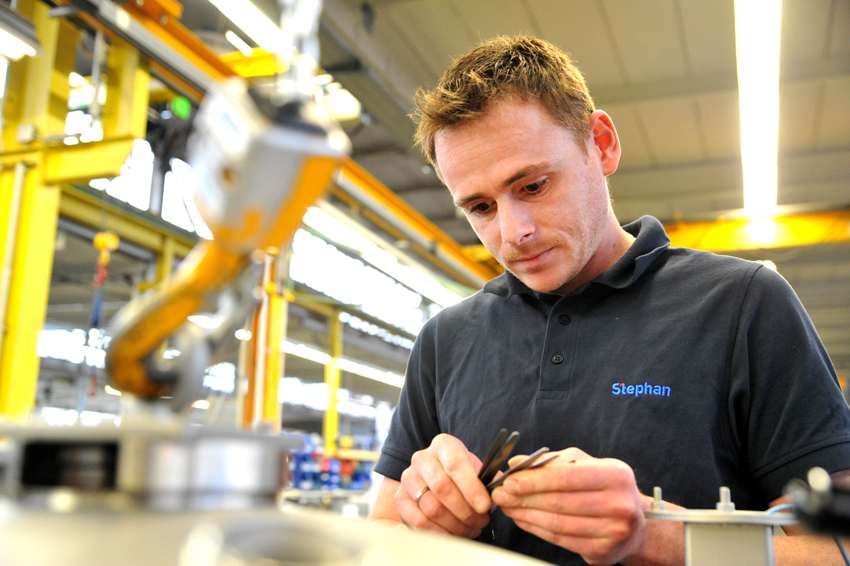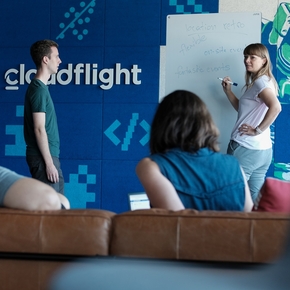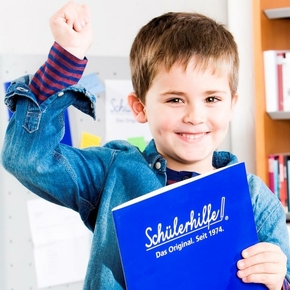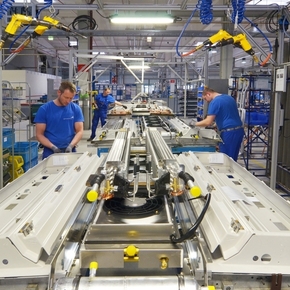Market leadership through successful buy-and-build
Many people have most likely come into contact with food produced with the help of the German machine manufacturer ProXES. In fact, the company's main focus is on process engineering for the production of liquid and semi-liquid foods. Today, the company is not only a leader in the field of food processing but is also active on a broad basis in the pharmaceutical and healthcare sectors and enjoys an excellent reputation across all industries. Along the way, DBAG has been able to actively support ProXES both with its capital as well as with its consultancy and network.
Background
When DBAG acquired a stake in ProXES in 2013, the company was already an attractively positioned developer and manufacturer of process technologies for the production of liquid and semi-liquid foods, such as baby food or processed cheese. ProXES machines were also used in the pharmaceutical and healthcare industries. The company was therefore able to serve several markets with its products.
At the time of entry, ProXES had its own development centre where complete systems could be designed. The core technology at that time was the company's own process machines. However, components from suppliers still had to be used in the upstream and downstream processes, such as the emptying of basic components and final packaging.
The promising market position combined with the versatility of the product solutions made ProXES an attractive investment opportunity for DBAG. The market is also characterised by structural growth. Another advantage is that the business with machinery for the food industry or the pharmaceutical sector is hardly susceptible to economic cycles. Added to this are advantageous trends such as the increasing industrialisation of food production due to the growing world population and higher prosperity, as well as high entry barriers for potential competitors.
Achievements during DBAG’s investment
Three
Add-ons
Expansion and offer optimization through three successful add-ons.
Revenues
3x
Revenues tripled through strategic acquisitions.
No. 1
Leading mechanical and plant engineering company in three industries: In the cosmetics industry, in the health care sector and in the food industry.
Challenges
The aim of the management and Deutsche Beteiligungs AG was to use ProXES 'market position and make the company one of the world's leading providers of process technologies for food processing, while also increasing the footprint in the pharmaceutical and healthcare sectors.
Above all, potential for increasing value was seen in expanding market coverage, expanding the range of engineering and expanding the after-sales business. Internal processes and production processes should also be further optimized, and the reporting system improved.
Measures
After the management and Deutsche Beteiligungs AG had worked out a detailed roadmap for the strategic development of ProXES, the product portfolio was expanded step by step based on a buy-and-build strategy through targeted company acquisitions in additional application areas.
The three acquired companies included the mechanical engineering company FrymaKoruma and the component manufacturers Terlet and Suatec - companies that develop and manufacture measurement and control technology. All three companies had a successful track record in food processing technology. In addition, they were also successful in the healthcare and cosmetics industries and thus fit perfectly into the product and service portfolio of ProXES.
At the operational level, the primary focus was on integrating the new companies. These had to be integrated into the global sales network and after-sales business. The same applied to the introduction of the new software for group-wide process harmonization, which was adopted from Suatec. In addition, a new company-wide reporting standard for more efficient corporate management was introduced.
Exit
The buy-and-build strategy was successfully implemented. The market position and thus also the turnover and the result could be increased significantly. Turnover rose from 42 million euros in 2013 to 133 million euros in 2017. This corresponds to growth of around 30 percent, year after year. Capvis, a Swiss private equity fund, finally prevailed in an auction process in July 2017 and acquired the company. The investors received 5.4 times the funds invested on exit.
The main drivers of this positive development were the use and expansion of the existing sales network to increase cross-selling activities after the expansion of the product portfolio and to expand the after-sales business. Internationalization also created a broader sales base, which further reduced dependency on the European market and individual applications.


 Newsletter
Newsletter






 Contact
Contact
 Downloads
Downloads






